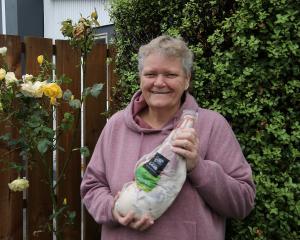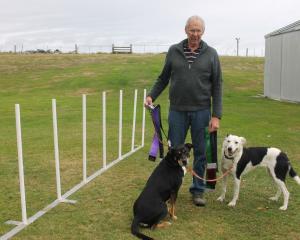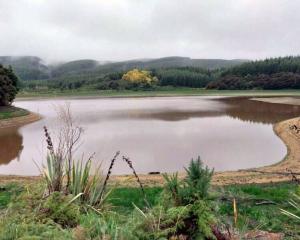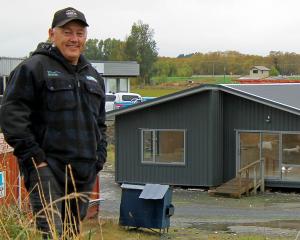
Near-drought conditions in Clutha are not just affecting rural areas, it has emerged.
The possibility of universal water metering in Tapanui was raised during a West Otago Community Board meeting yesterday as a potential solution to seasonal supply issues in the town, which are increasing.
The proposal comes after Agriculture Minister Damien O'Connor pledged last week to continue to monitor marginal drought conditions in the Clutha District, so the Government can step in if required.
During yesterday's board meeting, Clutha District Council group manager service delivery Jules Witt said maintaining normal urban water supply in the township during the recent summer had been "touch and go''.
He said the situation was a repeat of the previous summer, and water levels in the town's reservoir had repeatedly fallen below 50%, at which point issues with fulfilling demand and providing for emergency services began to arise.
On November 22, the council had had to make an "urgent'' appeal for residents to conserve water, as supplies reached a critical point.
Mr Witt said the council had engaged in extensive activity to apprise residents of the situation and bring about changes in water usage behaviour, including letter drops and "physically turning off hoses'' where they had been left unattended.
However, longer-term measures were required to address potential future recurrences, he told the meeting.
The council would prepare a range of proposals for the community board to consider "well in advance'' of next summer.
These were likely to include universal water metering as an option.
Civic case histories, backed up by anecdotal evidence from neighbouring district Central Otago - where metering was in place - suggested metering made consumers more aware of water wastage and the ways in which they used household water, Mr Witt said.
This could lead to a "positive'' situation of self-regulation, where even minor, council-imposed water restrictions around garden watering became unnecessary.
Board chairwoman Barbara Hanna said she would favour metering, given it could be shown to be effective.
"People who live rurally tend to have a better grasp of the importance of water conservation, as once it's gone, it's gone.
"We've got to consider what's best for the community as a whole.''












